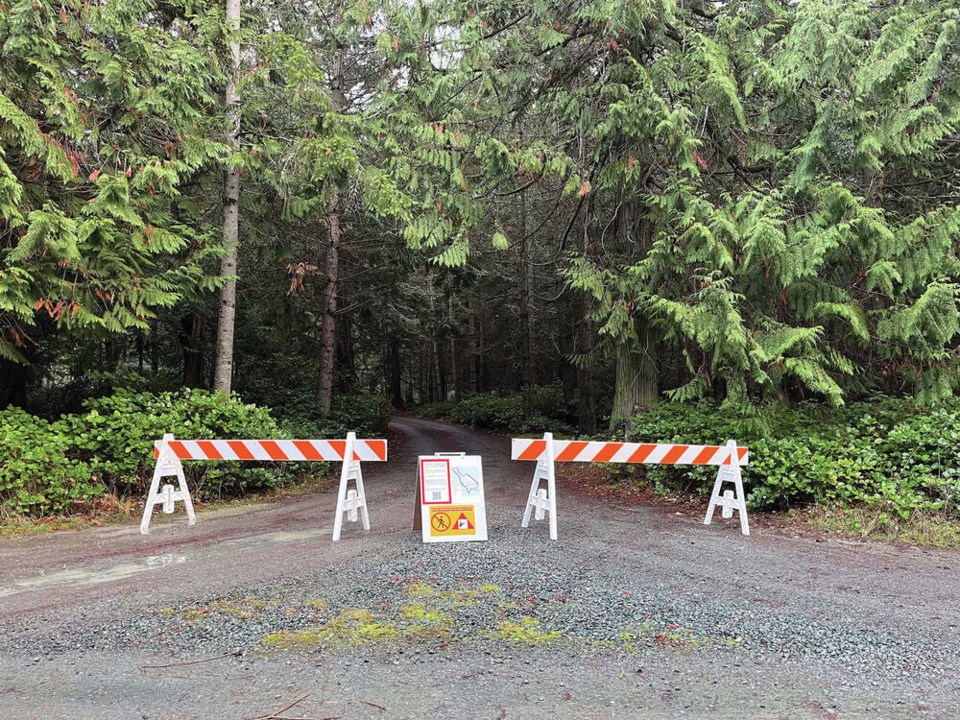A Sidney Island property owner says a helicopter was in the air Thursday night to begin aerial shooting of fallow deer on the island.
Carla Purves said there was “a flurry of activity” starting at 10:30 p.m. as Parks Canada’s controversial operation to kill hundreds of the invasive animals got underway.
The federal agency has contracted sharpshooters to kill fallow deer from a helicopter over the next several days, with help from hunters on the ground with semi-automatic rifles and silencers.
The few residents who are on Sidney Island have been told not to venture into the wooded area that is jointly owned by 111 members of the strata and comprises a large swath of land on the nine-square-kilometre island.
Signs and roadblocks on roads that cross the common area warn that active shooting is in progress.
Purves said she could hear the helicopter and see vehicles that were part of the operation on Thursday night, but all was quiet on Friday.
She said her home is on the north end of the island, and sharpshooters and butchers harvesting any dead deer would use part of the road near her home to access the area from the Gulf Islands National Park Reserve and Sidney Spit.
Parks Canada said it will not provide details of numbers of deer killed until after the initial phase of the operation ends, likely in about 10 days.
Kate Humble, parks superintendent of the Gulf Islands National Park Reserve, said hunting with one helicopter — flying a maximum of five hours each day — will last five days.
She said no dogs are being used in the first phase, but ground hunters will use “highly specialized dogs” that do not attack deer to track the last remaining animals in the second phase, between fall 2024 and spring 2025. That plan involves herding deer into fenced areas where they will be shot.
The deer kill, intended to reverse the ecological effects of decades of damage by grazing fallow deer, has been widely criticized for its $6-million price tag and for the methods used for deer eradication.
The cost of the first phase, which includes the helicopter and marksmen from the U.S. and New Zealand, is about $834,000, said Parks Canada.
Paul Lalonde, a Sidney Island owner, said islanders in group chats online reported little action on the island Friday. He said the silenced weapons being used may be playing a role, and “it may be hard flying a helicopter in drizzling and rainy weather.”
Environment Canada is calling for heavy rainfall and stormy conditions for the next several days, peaking with atmospheric river conditions on Monday and Tuesday.
First Nations harvesters arrived on the Island on Thursday night and set up camps on the national park side, which is closed to the public.
They are using all-terrain vehicles to collect the shot deer using GPS locations pinned by the marksmen. The deer will be skinned and butchered by the crews, who were trained using funds from the plan, and the meat will be stored in a refrigerated tractor-trailer unit that will be taken off the island to certified processors for packaging and eventual distribution to First Nations on the Peninsula and South Island.
Critics of the hunt have questioned the quality of the venison that could be produced. David Bird, a North Saanich resident and emeritus professor of wildlife biology at McGill University who is a regular hunter on Sidney Island, said wounded deer and those killed under extreme stress will largely contain inedible meat.
“The bottom line is that this mass killing will provide little usable food for First Nations and thus, be nothing more than a shocking waste of this resource,” Bird said in an opinion article in the Times 91原创 Friday
Some of the island’s resident hunters agreed, saying stressed animals release lactic acid that could sour the meat and shots that aren’t clean kills could nick guts that could tarnish the meat quality.
Purves and other islanders say the contracted marksmen may be hunting the deer in darkness, possibly using lights, “because these deer are very nocturnal” in their behaviour.
Some opponents of the eradication plan have been pressing government agencies to see the permits that were needed to carry out the plan, including permits to use a helicopter in a hunt and for use of restricted weapons.
Parks Canada did not immediately respond to a request for comment Friday afternoon.



